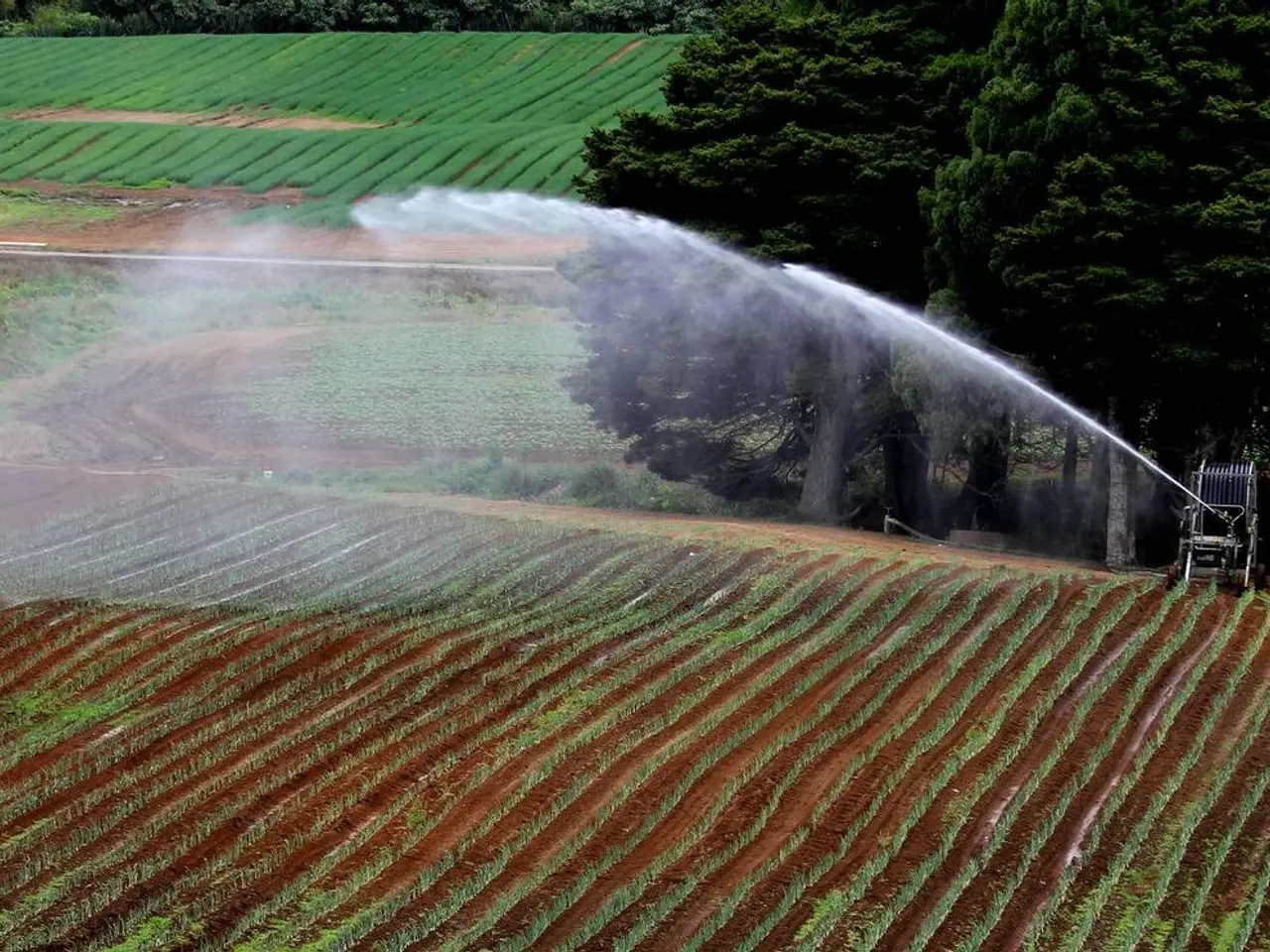Farmers in the West adopt advanced tech to increase agricultural output
In the Western region of Kenya, the Anglican Development Services (ADS) is revolutionizing agriculture by implementing innovative, climate-smart farming techniques to enhance food production, improve livelihoods, and empower farmers.
ADS's approach focuses on sustainable, environmentally friendly, and space-efficient methods. One such method is kitchen gardening and conical gardens, which allow farmers to maximize food production in limited spaces by growing vegetables vertically in layers. This technique is particularly beneficial for small homesteads and school compounds where land is scarce and soil quality is poor.
Farmers are also being trained in soil fertility management, including composting and bio-fertilizer production, to enrich soil organically, reduce costs, and enhance crop yields without harming the environment. Moreover, ADS promotes organic farming practices to improve soil health and reduce dependency on chemical inputs.
Water harvesting and conservation practices are also part of ADS's strategy, although specific details for Western Kenya are limited. The organization equips farmers with water harvesting techniques to help them cope with climate variability.
ADS also supports farmers in adopting drought-tolerant crops, especially in semi-arid areas, to help them cultivate resilient crop varieties that withstand changing climatic conditions.
In addition to these farming practices, ADS is involved in projects promoting renewable energy use in agriculture. Solar-powered cold rooms and dryers are being introduced to reduce post-harvest losses and increase value addition. Farmers are also being trained in soil health, organic pest control, and environmental conservation awareness.
ADS is not only focusing on farmers but also on the youth. Through partnerships with schools, ADS introduces agricultural training to young learners through 4K Clubs, teaching sustainable farming techniques that can be replicated at home.
The impact of these agricultural projects has been remarkable. Some schools have launched feeding programs from their gardens, while others sell surplus produce. Governor Kenneth Lusaka, the Bungoma Governor, believes that real empowerment lies in agribusiness and value addition along the value chain. He encourages farmers, especially the youth, to tap into agribusiness and value addition, as agriculture is considered the backbone of Bungoma's economy.
ADS aligns its work with government policies and frameworks to maximize impact. The organization is also establishing community resource centers and training hubs in various counties as demonstration sites for climate-resilient agriculture. Through these initiatives, ADS aims to continue enhancing food security, improving livelihoods, and helping farmers adapt to climate change and shrinking arable land in Western Kenya.
- ADS's epaper documents the impact of their climate-smart farming techniques in areas like kitchen gardening and conical gardens, which promote sustainable, environmentally friendly, and space-efficient methods.
- In the realm of lifestyle and home-and-garden, ADS teaches youth in 4K Clubs about sustainable farming practices that boost home-grown food production and foster sustainable living.
- As part of their education-and-self-development programs, ADS introduces agricultural training to school students, encompassing subjects like environmental science and climate-change.
- ADS's renewable energy projects in agriculture, such as solar-powered cold rooms and dryers, help reduce post-harvest losses, increase value addition, and encourage sustainable business practices.
- With a focus on politics and economy, the Bungoma Governor, Kenneth Lusaka, sees potential in agriculture as a means for real empowerment and value addition along the value chain, emphasizing the importance of agribusiness in the region's economic growth.




